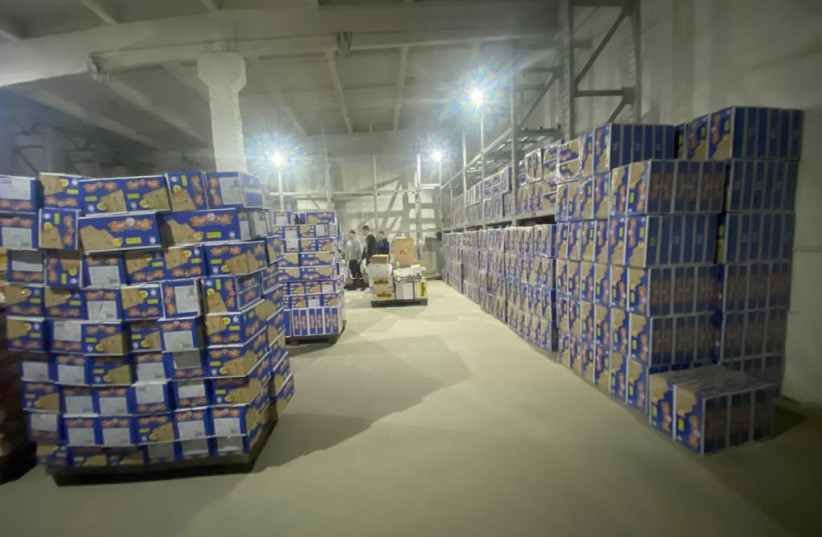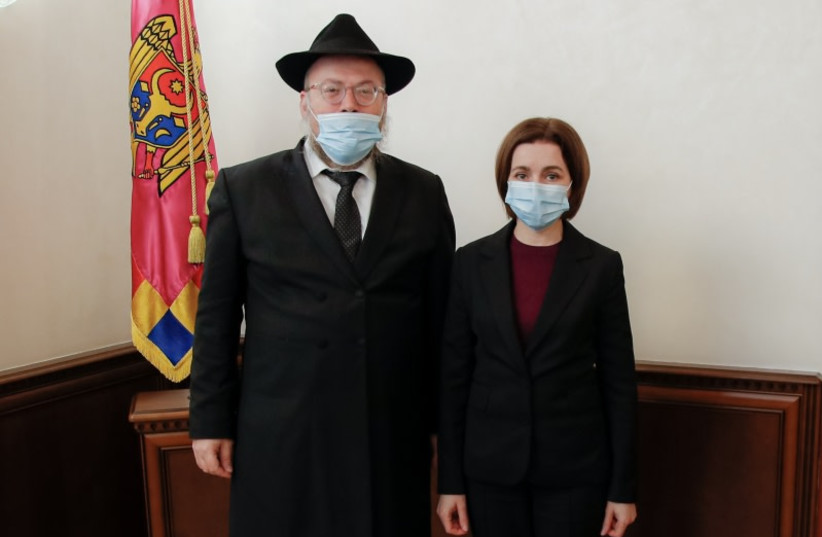Moldova’s 4,000-strong Jewish community has purchased 10 tons of matzot from Israel to distribute to Ukrainian Jews.
“We usually get all of our kosher food from the Jewish community of Odesa, since they are a much larger and established community,” Moldovan Chief Rabbi Zushe Abelsky told The Jerusalem Post. “Yet because of the Russian-Ukrainian war, there isn’t enough kosher food in Ukraine.”
“Before Passover, the Ohr Avner Foundation sent us matzot and kosher-for-Passover food,” he said. “The head of the foundation, Shlomi Peles, organized all our needs for Passover in conjunction with the Diaspora Affairs Ministry.”
“We have become one of the main kosher food distributors to Ukraine for Passover,” he added. “We have received a huge delivery of 10 tons of machine matzot that arrived from Israel. We have also received a few tons of kosher poultry, meat, preserves and all the other basic food for Passover.”
The war in Ukraine broke “when we were in the midst of renovating our synagogue,” Abelsky said. “So even though it was very difficult, we were able to [run] a kitchen that served 1,200 kosher servings a day for the Jewish refugees.”

Besides the three other Chabad emissaries working with him, nearly 40 people volunteered to help Ukrainian Jews who have crossed into Moldova since the Russian invasion began six weeks ago.
“We established five out-of-town camps for these refugees, and about 2,000 people stayed in our facilities, mainly members of Chabad Jewish communities,” Abelsky said.
“Jews from Kyiv and Kharkiv organized buses and came to Moldova, and many refugees also came independently,” he said. “We took care of their absorption on several levels: We met them at the border and brought them to Kishinev, and we helped them relax and rest for a few hours. Some of them decided to go to Israel; others to Germany, Vienna or other countries.”

“Some people slept in our facilities for two days and some for a week and a half,” Abelsky said. “We hosted them in rooms that suit a couple, and there is an amazing view from the windows. We brought kosher food from the city every day to these facilities. We also assisted those who needed medical attention.”
There are currently 50 to 60 refugees in the Moldova Jewish community’s facilities.
The Chabad Jewish community in Moldova consists of about 500 people, most of them in Chișinău, the capital.
“We will hold five communal Passover Seders for Jews across Moldova,” Abelsky said.
Moldovan President Maia Sandu last week praised Abelsky and his community for its support in “managing the flow of refugees from Ukraine, including humanitarian aid provided by the State of Israel through the Jewish community in the Republic of Moldova,” according to a press release sent by the President’s Office.
